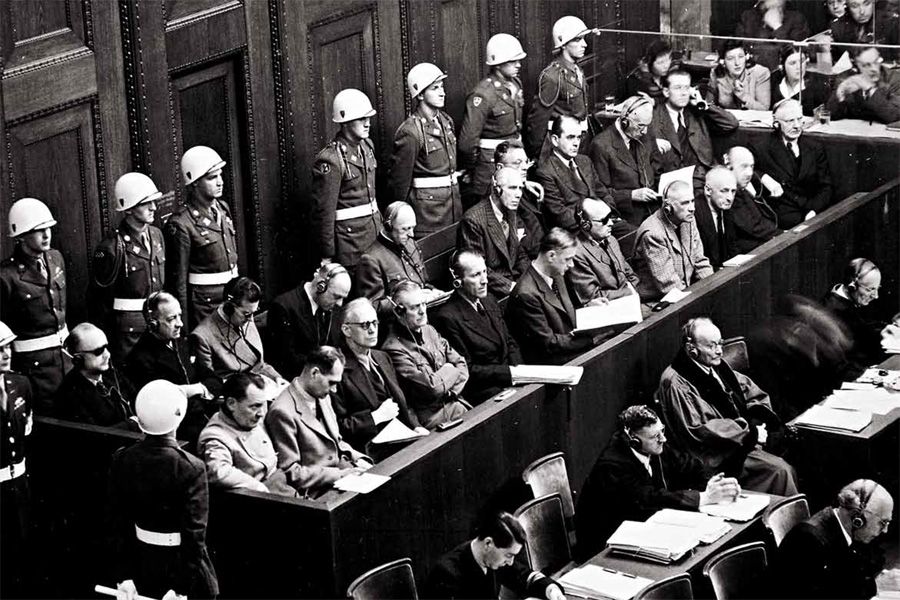
On October 1, 1946, the Nuremberg International Military Tribunal sentenced twenty-two major Nazi war criminals—twelve of them were sentenced to death.
The Nuremberg Tribunal was formed from representatives of the four victorious states in the Second World War: the USSR, Great Britain, the USA and France). The tribunal began its work in November 1945. The highest military and state officials of Nazi Germany were brought to justice, accused of having launched and waged aggressive wars, organized and carried out grave crimes against humanity in order to establish the world domination of Germany.
During 10 months, 403 meetings were held, 116 witnesses were questioned, more than 5000 documentary evidences were examined. On October 1, 1946, the verdict of the tribunal was announced.
12 people were sentenced to death by hanging: Martin Bormann, Deputy Führer for the Party (in absentia), Hans Frank, Governor General of Poland, Wilhelm Frick, Imperial Protector of Bohemia and Moravia, Hermann Göring, Reich Marshal, Alfred Jodl, Colonel General, Ernst Kaltenbrunner, Chief of the Security Service, Wilhelm Keitel, Field Marshal General, Joachim Ribbentrop, Minister of Foreign Affairs, Alfred Rosenberg, Minister for the Occupied Eastern Territories, Fritz Zauckel, Commissioner for the Use of Manpower, Arthur Seys-Inquart, Reich Commissioner of Holland, Julius Streicher , publisher.
Three were sentenced to life imprisonment: Rudolf Hess, assistant to the Führer, Hans Funk, Minister of Economy, Raeder, Commander-in-Chief of the Navy. Four were sentenced to long terms of imprisonment: Karl Denitz, Baldur Shirach, Albert Speer and Konstantin Neurat; three defendants were acquitted — Hermann Schacht, president of the Imperial Bank, former Reich Chancellor Franz Papen and director of Imperial Radio Hans Fritsche. The Chief of Staff of the Operational Command, Alfred Jodl, was exonerated posthumously.
Even before the trial began, the head of the German Labor Front, Robert Ley, committed suicide, and Gustav Krupp was declared terminally ill, which is why his case was suspended, and then terminated with the death of the defendant. The Nuremberg Tribunal found the leadership of the National Socialist Party, the party's security forces (SS), the security service (SD) and the state secret police (Gestapo) to be criminals, and for the first time in history recognized aggression as a serious crime against humanity.
The executions took place on the night of October 16, 1946 in the house of the Nuremberg prison. Hermann Goering committed suicide shortly before the treasury.
Trials of lower-ranking war criminals continued in Nuremberg until the 50s.

















